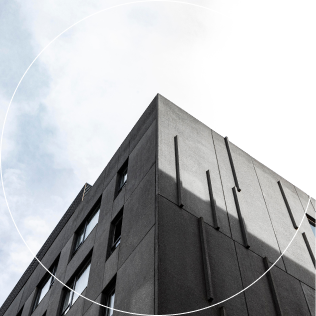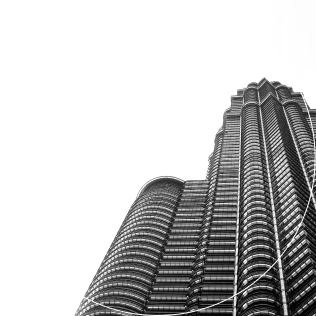NORRENBERGER PENSIONs RESOURCES
Frequently Asked Questions
- General FAQs
- About My Retirement
- Multi Funds
- Micro Pension Funds
- My Retirement Savings Account
- RSA Fund VI (Non-Interest Fund)
- Covid 19 - Impact On Investment Returns
The Contributory Pension Scheme (CPS) which commenced in 2004 is fully funded, privately managed, with third party in custody of the funds and assets and is based on individual accounts. It ensures that everyone who has worked receives his/her retirement benefits as and when due.
Once you have your RSA, you would contribute 8% of your monthly emolument while your employer would make an additional contribution of 10% into your RSA.
You may contact us via any of our communication channels. Call us on 08165722731, 097000800 or send us an email at clientservice.pensions@norrenberger.com
Under the Pension Reform Act 2014, an employee or contributor is allowed to move his RSA from one PFA to another once in a year only without having to tender reasons for the change.
The required documents include: Copy of CAC certificates, Tax Identification Number (TIN), Company’s Business Address and Nature of Business.
Below are the following documents that would be needed:
- Letter of Administration issued from high court/enrolment order/will admitted to probate stating the legal beneficiary/beneficiaries.
- Medical certificate of the cause of death issued by a certified physician.
- Certificate of death registration obtained from National population commission
- Letter of introduction from deceased employer stating the date of death/birth ,it should also introduce the next of kin.
Kindly be informed that RSA balance does not qualify a Retiree for Lumpsum. What qualified a Retiree for Lumpsum according to the revised regulation is the monthly pension. If a Retiree pension is less than one third (10,000) of the minimum wage (30,000), then such Retiree will be paid Enbloc. If it exceed the thresh hold amount, such Retiree will be paid Lumpsum & Programmed Withdrawal.
Monthly Pension & Lump Sum have an Inverse relationship. This means that the higher the monthly Pension, the lower the Lump Sum and vice-visa.
This is a possibility because Lump Sum & Programmed Withdrawal amount are determined by four (4) variables: Age at Retirement, RSA balance at Retirement, Gender and Annual Total Emolument (ATE).
Yes.
Yes.
Yes. You can withdraw a maximum of 25% of your RSA Balance before retirement.
No. 25% payment can only be withdrawn once. The remaining RSA balance shall be accessed at the retirement.
It is a string of payments made by Insurance company to its annuitants.
Yes. A retiree on PW may choose to use his lump-sum payment as premium for the purchase of annuity.
Lumpsum is residual. There is no fixed percentage.
The Multi-Fund structure is a framework that aims to align the age and risk profile of RSA holders by splitting the RSA Fund into four (4) distinct Funds. The current RSA Fund will be sub-divided into three separate Funds, while the RSA Retirees Fund would be the 4th Fund.
On the commencement date, the default mechanism will apply. All active members that are 49 years and below will be placed in Fund II and active contributors above 50 years would be placed in Fund III. However, active contributors may apply to switch between funds. An active contributor can switch from Fund II to Fund I while an active contributor in Fund III can switch to Fund II. All active contributors above 50 years cannot switch to Fund I and retirees cannot move to any other fund types.
No, as a retiree you are not allowed to move out of Fund IV as it has limited risk attached to it.
You can move once in a year without any charge but an additional movement in the same year shall attract a fee to be determined by PENCOM.
No. PFAs are the Fund managers and have the responsibility of investing your funds in secured investments so as to ensure good yields on your funds.
No, this is not possible because you are only identified with one PIN and cannot be allowed to have contributions in more than one fund structure at the same time.
Your fund will be profiled using your provided date of birth. However, you can still check and update your records with your PFA before the commencement of the transition.
There is no relationship between the transfer window and the multi-fund structure. The transfer window allows the customer the choice of moving his/her RSA from one PFA to another while the multi fund allows a customer the choice of moving from one fund type to another within the same PFA.
No. The balance in your account will not be affected. However, your unit price will change depending on the fund type.
Your RSA PIN accommodates both your Pension contribution and your voluntary contribution, so both will be transferred to your preferred choice of fund and managed in line with the provisions of the circular for voluntary contribution.
Micro Pension refers to an arrangement for the provision of pension to the self-employed, and persons operating in the informal sector (fashion designers, mechanics, market sellers, lawyers, taxi drivers, etc.) through the Contributory Pension Scheme. The primary objective of the Micro Pension Plan (MPP) is to provide retirement benefits to the Micro Pension contributors.
Anyone from ages 18 years can open a Micro Pension account. However, those below the stated age can still open an account with the consent of their parents or guardian.
Unlike the co-operative society, Micro Pension’s primary aim is to help you plan for your retirement. Funds are invested securely till the time of retirement. With the Micro Pension, you still have access to 40% of your contribution at any time before retirement.
Voluntary Contribution can only be made through an employer while Micro Pensions can be made individually with no maximum limit of contribution.
A Micro pension contributor can access 40% of his/her RSA balance before retirement.
No.
Besides receiving SMS alerts on remittances into your account, Your PFA sends periodic statements to your specified address. You may also obtain login details from your PFA for online statements.
You can schedule your remittance based on your preferences either daily, weekly or monthly.
Yes. This will reduce the processing time of your request.
No. This practice is not in compliance with standard operational procedure.
Yes. This will reduce the time for credit processing.
Yes. It is required to identify the RSA Holder.
Yes. It is required for seamless communication
It is to aid the smooth processing of your request.
Yes. All information pertaining to a RSA holder can be updated in the database. Upon meeting documentation requirements, you can update your Date of Birth.
Yes. You can make voluntary contribution to your RSA account even while your employer is not paying the mandatory pension contribution portion.
You can call any of the phone numbers on our website for the required assistance.
Yes you can. Below are the criteria that you have to meet for you to be able to withdraw before retirement:
If you are below 50 years old, you must be off an employment for a minimum of four months.
You can withdraw additional voluntary contribution after two years of contribution.
You can call any of the phone numbers on our website, and we will respond to you accordingly.
Yes, there are. Although the market for Non-interest Shari’ah compliant investment is quite novel, the first Non Interest bond issuance (Sukuk) in Nigeria was issued by the Osun State Government (a sub-national government) in 2013 with proceeds used for the construction of 26 schools using the Ijarah Sukuk structure. Also, in 2017, for the first time in history, the Federal Government of Nigeria (FGN) issued a N100 billion Non-Interest (Sukuk) bond with proceeds used to help fund road projects.
• Jaiz Bank Plc (A full-fledged Islamic lender operating since 2012) • Taj Bank Limited (A full-fledged Islamic lender operating since 2019) • Stanbic IBTC Bank Plc (Provides Islamic Finance services) • Sterling Bank Plc (Approval in principle to launch an Islamic finance arm). • Lotus Capital: A halal investment management company specialized in Shari’ah compliant asset management, private wealth management and financial advisory services
Yes. Firstly, Nigeria has over 100 Muslim citizens and is home to the largest population of Muslims in Sub-Sahara Africa. Secondly, the implementation of the Non-Interest Fund for the Nigeria Pension Industry is poised to promote increasing activities and further drive pension inclusion in Nigeria. Furthermore, with the PFA’s being able to invest in Non-Interest Shari’ah compliant fund, there would be increased issuance Non-interest instrument which would be over-subscribed.
The Regulation on Investment of Pension Fund Assets (Investment Regulation) defined “Non-interest compliant instrument” as: Financial securities and specialist investment funds that comply with the provisions of Islamic Commercial Jurisprudence (Shari’ah) and any other established non-interest principles, as approved by the Financial Regulation Advisory Council of Experts (FRACE), or any other body, constituted by the Central Bank of Nigeria (CBN) and/or the Securities and Exchange Commission (SEC).
i. Government Sukuk, (Including Islamic Treasury Bills and Euro Sukuk) issued by FGN or FGN Agencies and Infrastructure Sukuk, backed by FGN/CBN guarantee ii. Corporate Sukuk (including Sharia’ah complaint ABS, MBS, GDV, Euro Sukuk and Infrastructures Sukuk) iii. Supranational Sukuk iv. Shari’ah compliant Money Market Instrument v. Sharia’ah compliant ordinary shares (including GDRs) vi. Sharia’ah complaint infrastructure funds vii. Shari’ah compliant Private Equity Funds viii. Shari’ah compliant Open/Closed/Hybrid Funds ix. Shari’ah compliant Real Estate Funds It is also important to note that Fund VI assets are also allowed to be invested in conventional assets where a PFA is unable to find approved Non-Interest instruments. The conventional assets are to be phased out as more approved Non-Interest instruments become available.
PenCom allows Fund VI assets to be invested in conventional assets where a PFA is unable to find approved non-interest instruments. Overtime, the conventional assets would be phased out as more approved non-interest instrument become available. The conventional securities to augment Sharia-compliant assets could be interest bearing but should not be in sectors/business whose underlying assets/products do not meet the basic ethical principles. Examples include companies into alcoholic beverages, pornography, weaponry, gambling/betting, speculation etc.
RSA Holders in Fund I, Fund II and Fund III are eligible to move their RSA contributors to Fund VI (Active Fund VI) Also, Retirees in Fund IV are eligible to move their RSA contributions to Fund VI (Retiree Fund VI) It is also important to note that Fund VI shall be separated into two funds. They Include: i. Active Non Interest Fund (Active Fund VI): Contributors in Fund I, II and III that have elected to move their contributions to Fund VI ii. Retiree Non Interest Fund (Retiree Fund VI): For Retirees in Fund IV that move their contributions to retiree Fund VI Note: RSA contributors in Fund II can move their contributions directly to Retiree Fund VI at the time of retirement
Yes. The RSA Fund VI is open to Muslims and non-Muslims. The Non-Interest fund offers to RSA Holders who are interested in having their retirement savings managed in an ethically conscious way which would benefit the people, economy and are of social good.
Eligible RSA holders seeking to move to Fund VI can do so in accordance with the existing regulation dealing with active choices which would involve hand written request to transfer. You can always reach out to us on your choice of moving to the RSA Fund VI.
The Non-Interest Fund (Fund VI) shall not be invested in the production or trading of alcohol, pornography, weaponry, gambling/betting, speculation, interest earning ventures and other ventures
- Fixed Income Investments: These are types of financial Instruments where the returns (i.e. Interest) are determined from the first day of the investments. These includes Bonds, Treasury Bills etc. they are used to preserve capital.
- Variable Income Instruments: These are types of financial Instruments where the returns (i.e. Interest) are not defined from the first day of the investments. These includes Stocks, Infrastructure Funds etc. They are used to enhance return, where it is possible to make returns in excess of 20% but also possible to lose value.
The global economy is currently being rattled by the COVID-19 health pandemic which has infected over 3million people and killed over 200,000 globally.
This pandemic which has disrupted all economic activities globally has also affected the Nigerian Financial Markets and prices of Financial Assets have suffered as a result. The erosion of some value of your RSA Balance is therefore as a result of these depressed Asset Prices.
We are however taking active measures to ensure minimum effect on our Customer’s RSA balances while we are very positive on a reversal of lost value post Covid-19.
There have been contributions into your account, however the impact of the erosion of the previously earned Income on your accounts may have been more than the amount of contribution posted over this period.
Only the portion of the Returns earned on your RSA balance is being affected.
All Funds have a combination of both Fixed Income and Variable Income Instruments and are all being affected by the current market depression.
A more realistic expectation of when global economic activities will fully resume will be when a cure/vaccine for the rapidly spreading pandemic is discovered and ready for administration. This could take a while based on evidence of things at the moment.
We have rejigged our strategy to factor in the realities of the Covid-19 situation with a view to preserving the main objective of the Pension Fund Management which is Capital preservation while also seeking to maximize returns within acceptable level of risk-reward trade off.
While you are free to move from one fund to another, the profile of Fund I fits with a young person or someone who still has a lot of years to work before retiring. Since you would not be retiring soon, Fund 1 would be most suitable for you.
Given that markets move in cycles, opportunities to recover whatever declines you may have witnessed will present themselves and whenever this window opportunities opens, the Fund I is better positioned to benefit more from it due to its higher risk-reward trade off.
We always advise that you take a long-term view of your pension funds and be confident that our long-term investment strategy for your fund will deliver you good value in due course. What is currently being witnessed is short term market fluctuations.
YES, however, movement from one fund to another is once in a year as stipulated by the Commission.
The current market decline will not affect Programmed Withdrawal (PW) payments. The current portfolio structure for the Fund IV is such that the fund is hedged against significant short-term market fluctuations.




